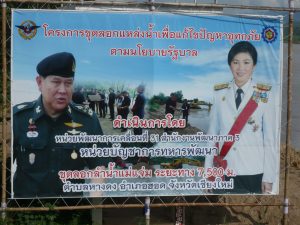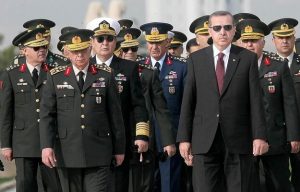Memo #180
By Duncan McCargo (D.J.McCargo [at] leeds.ac.uk) and Ayse Zarakol (zarakola [at] me.com)
 Thailand and Turkey have a lot in common. Both countries celebrate their avoidance of formal colonization by adopting Westernizing adjustments overseen by “modernizing” rulers in the 19th century. Both have followed similar state-led economic development trajectories in the 20th century, only to liberalize after the 1980s. Both are known for military interventions in the electoral process. Both are highly nationalistic and devoted to national myths of development centred around revered figures.
Thailand and Turkey have a lot in common. Both countries celebrate their avoidance of formal colonization by adopting Westernizing adjustments overseen by “modernizing” rulers in the 19th century. Both have followed similar state-led economic development trajectories in the 20th century, only to liberalize after the 1980s. Both are known for military interventions in the electoral process. Both are highly nationalistic and devoted to national myths of development centred around revered figures.
Both Thailand and Turkey welcomed in the last decade popular elected leaders – Thaksin Shinawatra and Tayyip Erdogan – who succeeded in displacing the dominance of the military and undermining the political myths that have shaped the nation for decades. In both countries, the traditional elite, convinced that its values lie at the core of the nation’s identity, has found itself challenged by a newly enfranchised electorate.
We know what happened in Thailand next: mass rallies, a military coup in 2006, party dissolutions, political bans, constitutional reform, and violent clashes in the streets, only to have Thaksin emerge victorious once again through his sister Yingluck in the 2011 general elections.
In Turkey, there were also mass rallies, but the military stopped short of intervention and the courts have even convicted some military leaders for planning a coup. The ruling party was also almost dissolved by the Constitutional Court. Despite these close calls, Erdogan is still in power, having carried his party to a third electoral victory in 2011.
What does the comparison tell us? The uninterrupted majoritarian rule in the last decade has been good for Turkey’s economy and foreign policy image. Thailand may have followed a similar trajectory had it not been for the 2006 coup and resulting conflicts. Left unchecked, Erdogan went on to dismantle much of the old establishment, much as opponents had worried. The situation in Thailand continues to be wracked by uncertainty, but Thaksin’s supporters have not receded to the sidelines, despite the coup.
The Thai and Turkish cases may have followed different trajectories but they show the unforgiving logic of social change in modernizing societies – the “urban villagers” are not going back to the village. They will continue to challenge elite and military rule.
About the Authors:
Dr. Duncan McCargo, University of Leeds /Columbia University
Dr. Ayse Zarakol, Council on Foreign Relations /University of Cambridge

Royal Thai Army Chief Prayuth Chan-ocha pictured with Prime Minister Yingluck Shinawatra on a military development project poster in Chiang Mai province
Links:
- Turkey and Thailand: Unlikely Twins, Journal of Democracy, July 2012. (By Duncan McCargo and Ayse Zarakol)
- Network monarchy and legitimacy crises in Thailand, The Pacific Review, December 2005. (By Duncan McCargo)
Related Memos:
- Our other Memos about Thailand
